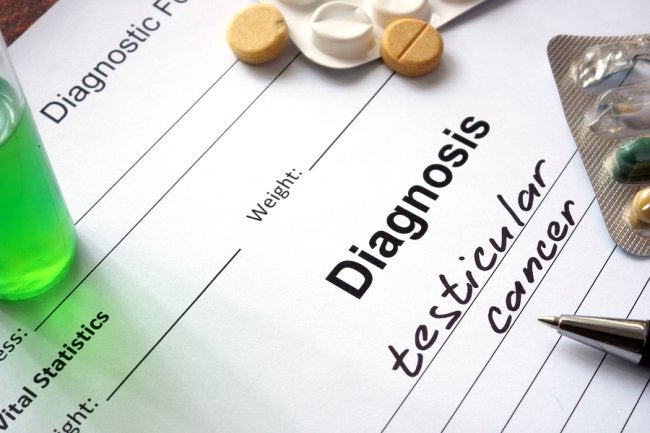-
Understanding Common Triggers of Vaginal Atrophy

Vaginal atrophy, sometimes referred to as atrophic vaginitis, is characterized by the inflammation of the vaginal walls. The tissues become drier and thinner than usual, which can lead to painful sexual intercourse. In turn, this complication can lead to loss of libido. Like other forms of sexual dysfunction , this condition is treatable by a urologist.
Life Stages
Vaginal atrophy is associated with declining levels of estrogen in the female body . At certain stages of life, estrogen production naturally declines. When a woman reaches menopause, estrogen production is quite minimal. In the years leading up to menopause, known as perimenopause, estrogen production generally declines. However, it usually does so in an irregular and sporadic fashion. The result is that the vaginal walls are no longer as elastic.
Reproductive Choices
While the evidence is not necessarily conclusive, it is thought that women who have never given birth vaginally may be more likely to develop vaginal atrophy compared to women who have experienced vaginal births. It is also possible to develop vaginal atrophy due to breastfeeding. Lactation-induced vaginal atrophy is typically accompanied by reduced libido and painful intercourse. Unfortunately, it’s commonly misdiagnosed or left untreated because it’s easy to mistake lactation-induced vaginal atrophy for the other typical changes that are characteristic of the postpartum period, such as sleeplessness and stress.
Medical Interventions
Sometimes, medical interventions are to blame for vaginal atrophy. Although cancer treatment can save lives, it may also sometimes cause vaginal atrophy. Women with cancerous tumors that are sensitive to hormone levels may experience a decline in estrogen due to cancer treatments. Estrogen levels may also decline because of radiation therapy directed at the pelvic area, surgical removal of the ovaries, and chemotherapy.
Urology Associates, P.C. is your source for sexual dysfunction solutions in Tennessee. We treat every patient with the sensitivity, compassion, and confidentiality she deserves. If you have concerns about your sexual health, give us a call today at (855) 901-1338 to speak with a friendly staff member.
-
The Link Between Pelvic Floor Dysfunction and Interstitial Cystitis
Interstitial cystitis (IC) is a painful inflammatory condition that affects the bladder. Patients with IC may first visit a urologist because they experience frequent, painful urination and pelvic pressure. However, a urologist may also need to treat IC patients for pelvic floor dysfunction.
As you’ll learn by watching this video, patients with IC have a higher risk of developing pelvic floor dysfunction. In these patients, the pelvic floor muscles are too tense, leading to symptoms such as muscle spasms, pain during intercourse, and constipation.
At Urology Associates, P.C., you’ll find compassionate care for interstitial cystitis , pelvic floor dysfunction, and similar health problems such as sexual dysfunction. Call (855) 901-1338 and let our urology team in Nashville know how we can help you reclaim your health.
-
Living with Nocturia

Do you wake up several times each night to go to the bathroom? Do you struggle with daytime fatigue because of your nighttime bathroom visits? You could be suffering from nocturia , which is a condition commonly associated with advanced age. It’s important to speak with a urologist about your urinary problem because it may signal an underlying medical condition that requires treatment. Receiving urology care can also help you achieve restful sleep at night.
Evaluating the Underlying Cause
When you see a urologist to discuss your urinary issues, he or she will try to determine the underlying cause before recommending an appropriate treatment plan. Sometimes, nocturia is caused by lifestyle issues, but often it’s the result of medical conditions such as untreated diabetes, congestive heart failure, sleeping disorders, or lower extremity edema. It can also be the result of other urologic conditions such as bladder obstruction, overactive bladder, a urinary tract infection (UTI), or benign prostatic hyperplasia, also known as an enlarged prostate. If one of these conditions is to blame for your symptoms, your doctor can suggest options for treating the underlying cause to alleviate your urologic symptoms.
Considering Medications
Your treatment options may include medications . Some of the most common medications prescribed for nocturia include anticholinergic drugs like darifenacin, oxybutynin, or tolterodine. These drugs can relax the bladder to prevent bladder spasms and reduce the risk of overactive bladder. Before taking any new medications, be sure to tell your urologist about any drugs you may already be using.
Making Lifestyle Changes
In addition to medical management, your urologist may recommend making simple lifestyle changes to help you sleep through the night. Patients with nocturia should be careful to limit their fluid intake in the evening hours, especially caffeinated and alcoholic beverages. Elevation of the legs throughout the day can alleviate the accumulation of fluid. You might also need to adjust medications you may already be taking, such as diuretics. Taking diuretics earlier in the day can help prevent nighttime bathroom visits.
With help from Urology Associates, P.C., you can successfully manage nocturia and finally get a good night’s sleep. Our urology team in Tennessee also works with patients who suffer from sexual dysfunction, incontinence, and urinary tract infections. Call our office today at (855) 901-1338 to request a confidential consult.
-
A Look at Circumcision in Adulthood

In the US, approximately 65 percent of newborns undergo elective circumcision within a day or two of birth. These procedures are performed for religious reasons or because of cultural traditions, however they are not medically necessary. In some cases, men who were not circumcised as infants decide that they want to have the procedure in adulthood. If you wish to become circumcised, the first step is to make an appointment with a urologist.
From a urology perspective, adult circumcision is usually not necessary. Some men have difficulty with foreskin retraction or experience chronic inflammation of the tip of the penis that can be relieved through circumcision, but can often also be managed with changes in hygiene habits. When these non-invasive methods are not effective, a urologist may then recommend a circumcision. In other cases, circumcision offers no medical benefits, other than a slightly lower risk of UTIs.
If you’re experiencing sexual dysfunction in Nashville , from erectile dysfunction to low libido, help is available at Urology Associates. Talk to a urologist about common sense treatments for your sexual health by scheduling a consultation at (855) 901-1338.
-
Understanding Peyronie’s Disease

Peyronie’s disease is a painful condition that can have significant impacts on sexual health and relationships for men. If you are suffering from this condition, make an appointment with a urologist. Treatments are available that can improve your symptoms and provide relief from the stress that often accompanies Peyronie’s disease. Here is a closer look at the condition and what treatments are available.
What Is Peyronie’s Disease?
Peyronie’s disease is a condition in which fibrous tissue inside of the penis causes it to curve during erections. This curvature is often extremely painful and can make it impossible to have sexual intercourse. The exact causes are not known. In some cases, injuries to the penis can cause the growth of fibrous scar tissue that does not stretch during erections as healthy tissue does. For some men, the causes of Peyronie’s disease are not known. Doctors suspect that a hereditary component may be involved, but the research as yet is inconclusive.
What Are the Symptoms?
Often, men with Peyronie’s disease can feel lumps of scar tissue under the skin of the penis. During erections, there will be a noticeable bend in the penis, or it may take on a narrowing or hourglass shape. Peyronie’s disease can also cause erectile dysfunction and intense pain during erections. In response to these symptoms, it is common for men with Peyronie’s disease to experience anxiety or depression related to their sexual health.
What Treatments Are Available?
In some men, Peyronie’s disease resolves on its own with any treatment. Medications to reduce scar tissue formation and relax the curvature of the penis are available through injections, and topical or oral medications. Surgery, including penile implants and grafting, can also help to reduce Peyronie’s disease symptoms.
At Urology Associates, our urology specialists treat a range of sexual dysfunction issues in both men and women. If you are suffering from Peyronie’s disease or another condition that prevents you from having healthy sexual relationships, call us today at (855) 901-1338 to make an appointment with a urologist in Nashville.
-
Is Diabetes Linked with Erectile Dysfunction?
The impact of diabetes on sexual health is often overlooked, but sufferers frequently have symptoms of sexual dysfunction. For men, diabetes can often lead to erectile dysfunction that can be difficult to overcome without specialist treatment.
This video explains more about the link between erectile dysfunction and diabetes. Having diabetes for a long time and having poor blood sugar control increase the risk of ED. While oral therapies for ED are often ineffective in men with diabetes, a urologist can offer alternative treatments to reverse impotence.
Don’t let issues with your sexual health in Nashville go untreated. At Urology Associates, P.C., our experts have solutions that work. Make an appointment with a urologist today by calling (855) 901-1338.
-
Get the Facts About Testicular Cancer

Testicular cancer stands out from other forms of cancer in that it is more common in young men than older men. Because it often occurs in a population that is not considered to have a high cancer risk, men with testicular cancer may often miss the early symptoms because they are unsure of what to look for. Fortunately, cancer treatment from your urologist can be effective in helping you beat this disease. Explore the facts about this disease and the testicular cancer treatments so you can be vigilant about your own health.
Recognizing Your Risk Factors
There are several risk factors for testicular cancer, however, most men who develop this kind of cancer do not have any noticeable risk factors present. Having an undescended testicle is one of the biggest risk factors, so your doctor may monitor you for testicular cancer symptoms if you have this condition. HIV infections, being Caucasian, and having a family or personal history of testicular cancer may also increase your risk. Approximately 50 percent of men with testicular cancer are between 20 and 34, but it can and does affect men in all age groups, including infants.
Spotting the Symptoms
A lump or swelling in one testicle is a common sign of cancer. In some cases, men may develop gynecomastia as the result of testicular cancer. Young boys who develop testicular cancer may experience an early onset of puberty. In some cases, men do not have symptoms at all in the early stages and may develop back pain, belly pain, headaches, and shortness of breath as a result of testicular cancer that has spread. Performing self-exams can help men recognize the symptoms sooner.
Talking About Treatment
Testicular cancer treatments vary depending on the stage of the cancer at the time of diagnosis. Surgery to remove the affected testicle as well as chemotherapy, radiation, and stem cell therapy can all be helpful.
Testicular cancer treatment in Nashville starts with the urologists at Urology Associates. If you have symptoms, get on the road to diagnosis and treatment today by calling (855) 901-1338.
-
Hormone Replacement and Low T Treatment

Men who have been experiencing sexual health issues such as erectile dysfunction may decide to consult a urologist to find out if they could have low testosterone levels, or low T. It’s perfectly natural for a man’s testosterone levels to decline gradually with age. However, for some men, the signs and symptoms of changing hormone levels are difficult to cope with. Urologists previously gave men with impotence oral testosterone therapies. However, it’s now known that these medications are not effective and may even be harmful.
Similarly, testosterone injections do not create stable testosterone levels and may lead to testicular atrophy. There are better options available today, such as transdermal applications. Men who are interested in a long-term solution might consider receiving an implantable pellet, which releases testosterone over four to six months.
Urology Associates, P.C. is pleased to offer transdermal testosterone therapies and implantable pellets to men who experience sexual health problems in Tennessee. Give us a call today at (855) 901-1338 to set up an appointment.
-
What Men Need to Know About Chronic Pelvic Pain

Although chronic pelvic pain is most often associated with women, it’s also a real health problem for men. Unfortunately, it can also be difficult to diagnose. Primary care physicians may run numerous tests and fail to come up with an answer for patients’ symptoms. This is one reason why it’s advisable to turn to a specialist for help. A urologist can help men with chronic pelvic pain understand their condition and identify their treatment options.
Symptoms
Chronic pelvic pain syndrome (CPPS) can involve a wide range of symptoms that may arise periodically and may persist for a long time. Men may report suffering from pain in the urethra, penis, prostate, testicles, perineum, rectum, or groin. The pain may even develop in the thighs, lower abdomen, tail bone, and lower back. It’s not unusual for patients to have trouble pinpointing exactly where the pain is, since it can be felt deep within the body, may be intermittent, and may wax and wane.
Complications
Men with CPPS may report various complications to their urologist. Men may suffer from urinary incontinence. CPPS is associated with urinary frequency, urinary urgency, pain while urinating, or a weak stream. Sexual dysfunction may also occur, including erectile dysfunction, low libido, premature ejaculation, and painful ejaculation.
Causes
Chronic pelvic pain is associated with a number of underlying medical problems, including chronic prostatitis. This refers to an inflammation of the prostate gland , which is usually the result of a chronic bacterial infection. Men with chronic prostatitis may find relief with antibiotics, perhaps combined with alpha-blockers. CPPS may also be associated with epididymitis, testicular problems, scrotal problems, and pelvic floor muscle spasms.
At Urology Associates, P.C., we understand the complexities of diagnosing and treating men with chronic pelvic pain. Our team of urology specialists in Tennessee encourages men to visit one of our 12 clinics for an evaluation, even if they have previously been evaluated elsewhere. New and current patients can reach us at (855) 901-1338 to request an appointment.
-
What Causes Low Sex Drive in Women?
 Given that much of the research on sexual dysfunction focuses on the male partner, low sex drive in women is not as well understood. However, it’s more common than you might think. Urology specialists have termed this condition hypoactive sexual desire disorder (HSDD). More research is needed in this area to definitively determine exactly what causes low libido in women. However, there are currently two primary schools of thought: The vascular theory and hormonal theory.
Given that much of the research on sexual dysfunction focuses on the male partner, low sex drive in women is not as well understood. However, it’s more common than you might think. Urology specialists have termed this condition hypoactive sexual desire disorder (HSDD). More research is needed in this area to definitively determine exactly what causes low libido in women. However, there are currently two primary schools of thought: The vascular theory and hormonal theory. Vascular Causes
Urology specialists already know that in men, circulatory problems can contribute to sexual dysfunction because of the inhibition of blood flow to the penis. The vascular theory of female HSDD applies this concept to women. It’s thought that women may suffer from low sex drive because reduced blood flow to the pelvic region may prevent sexual arousal, promote vaginal dryness and discomfort, and reduce sensitivity of the clitoris. Growing older, being under severe or chronic stress, or having certain medical conditions such as diabetes and atherosclerosis might contribute to inhibited blood flow to the pelvic region . To address this problem, urologists may recommend topical applications to dilate the blood vessels, increase blood flow, and improve sensitivity and arousal.
Hormonal Causes
Other urologists believe that hormonal imbalance may be primarily responsible for HSDD. As women grow older, their levels of estrogen and testosterone begin to decline. Much like men who are trying hormone replacement therapy, women might consider synthetic hormones to counteract the changes associated with aging.
Contributing Factors
It is quite possible that other issues may contribute to HSDD, perhaps in addition to hormonal or vascular problems. Female sexual dysfunction may be attributed to a prior injury that has caused nerve damage, such as a spinal cord injury. Similarly, women who have previously undergone surgery in the pelvic region may have sustained nerve damage. Other possible risk factors may include excessive bicycle riding, drug use, smoking, and vaginal atrophy.
At the Women’s Institute for Sexual Health (WISH), women will find sensitive and compassionate sexual health care in Nashville. The urology team at Urology Associates, P.C. offers the latest FDA approved treatment for low libido in women, Addyi (fibanserin). Call us today at (855) 901-1338 to arrange a private, one-on-one consult with a urologist.
Recent Posts
categories
- Uncategorized
- Bladder Cancer
- Women's Sexual Health
- MonaLisa Touch
- Urology
- Urologist
- Erectile Dysfunction
- Kidney Cancer
- Incontinence
- Prostate
- MonaLisa Touch Laser Treatment
- Kidney Stones
- Urinary Tract Infections
- Event
- Sexual Dysfunction
- Testicular Cancer
- Prostate Cancer
- Urology Surgery Center
- urinary incontinence
- vaginismus
- noncoital pain disorder
- Hypoactive Sexual Desire Disorder
- Infographic
- provenge
- Xofigo
- robotic surgery
- hormone replacement
- diabetes
- renal cell carcinoma
- pelvic pain
- hematuria
- sexual health
- chronic testicular pain
- premature ejaculation
- Men's Health Clinic
- Dr. Melvin Seard
- Interstitial Cystitis
- vasectomy
- overactive bladder
- vaginal atrophy
- nocturia
- bladder infections
- urethral strictures
- Acute Epididymitis
- low sex drive
- circumcision
- pelvic floor dysfunction
- Peyronie's Disease
- prostatitis
- female sexual dysfunction
- varicocele
- difficult urination
- low libido
- PSA levels
- male fertility
- penile prosthesis
- prostatic intraepithelial neoplasia
- male infertility
- estrogen levels
- nurse navigator
- stress urinary incontinence
- vaginal yeast infection
- elevated psa
- painful sex
- adult circumcision
- epididymitis
- OAB
- kidney infection
- penile cancer
- pelvic organ prolapse
- Vasectomy Reversal
- bone health
- cystectomies
- clinical trials
- bloody urine
- Advanced Therapeutic Center
- WISH MedSpa
- neurogenic bladder
- WISH Team
- prostate biopsies
- BPH
- fecal incontinence
- lithotripsy
- osteoporosis
- kidney cysts
